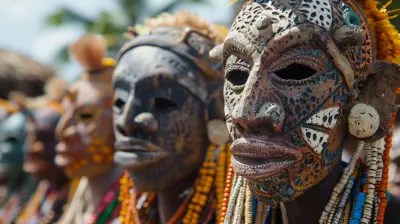Harmonizing Humanity: Musical Traditions at Cultural Celebrations
31 October 2025
What’s the one thing that makes people move, smile, and sometimes even tear up — no matter where they are from? Music! Whether you're walking through the narrow alleyways of Morocco during a wedding or catching beats at a Brazilian carnival, there's one universal truth: music brings people together. Cultural celebrations, across borders and backgrounds, often have a rhythm of their own. It's like each culture has its own soundtrack, playing in perfect sync with its traditions.
In this article, we’re diving deep into how music becomes the heartbeat of cultural celebrations around the globe. From pounding drums to soulful chants, let’s explore how these tunes weave into the very fabric of human connection.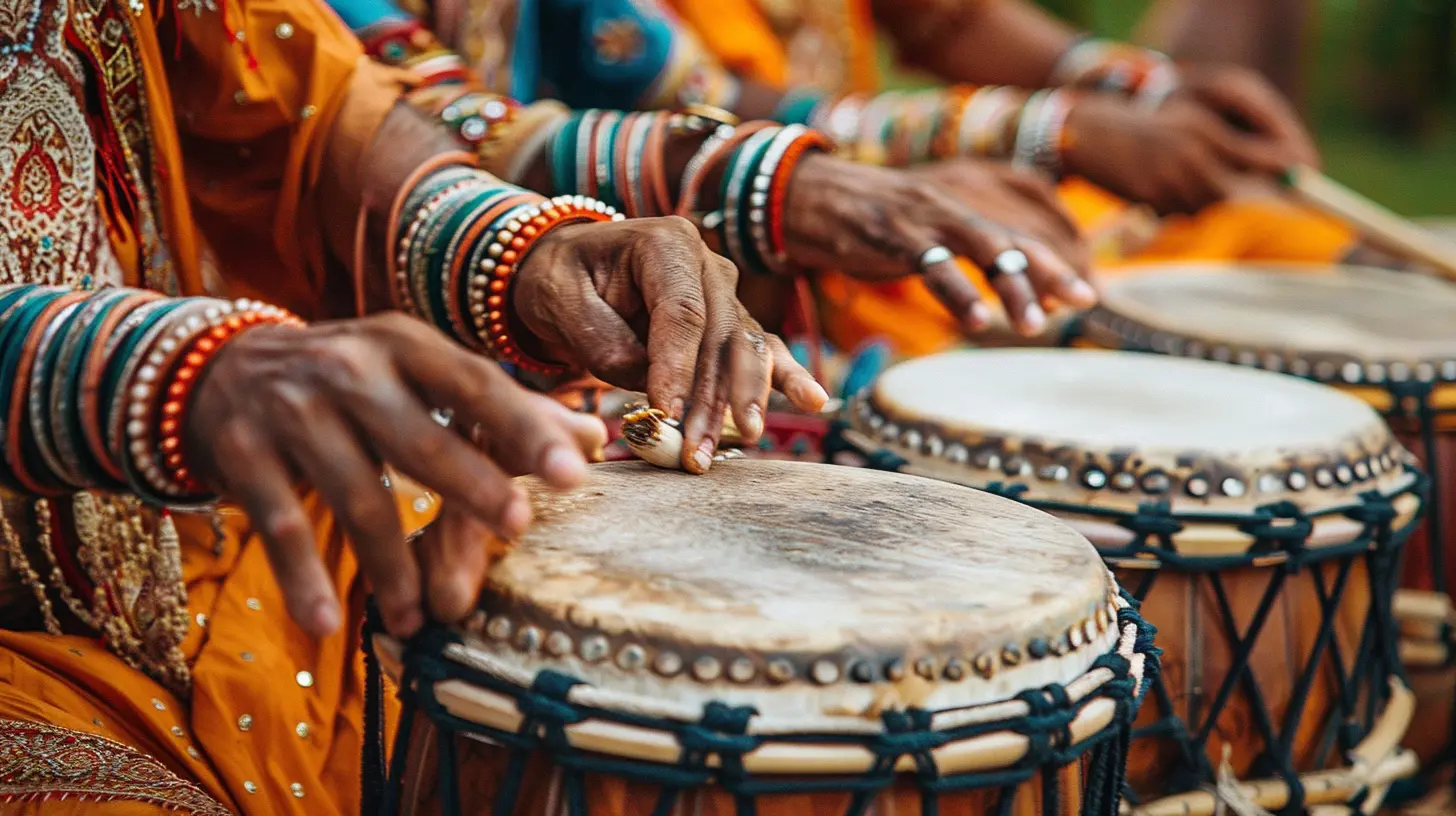
The Universal Language: Why Music Matters in Human Culture
Let’s face it — we all may speak different tongues, follow different customs, or even eat wildly different foods. But music? It breaks barriers. It speaks directly to the soul. Ever tapped your foot to a melody in a language you didn’t understand? That’s the power of music.At cultural events, music serves a bigger purpose than just background noise. It sets the tone, drives emotions, and helps preserve history and heritage. Music during these celebrations is more than entertainment — it’s identity, storytelling, and emotion bundled into soundwaves.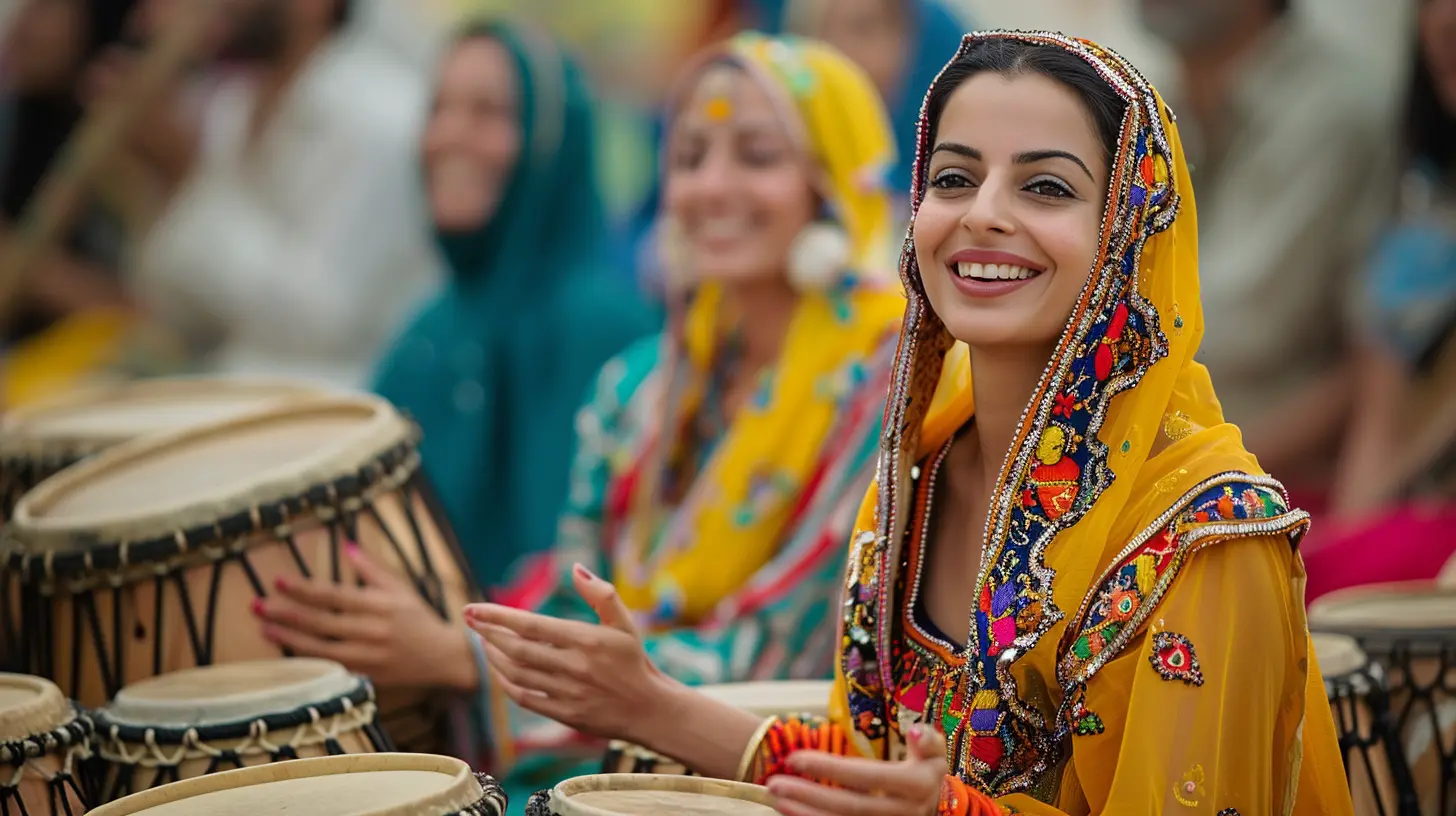
How Music Shapes the Atmosphere of Cultural Celebrations
Imagine a wedding without music. Or a festival parade with no marching band. Sounds empty, right?Music doesn't just fill space; it fills hearts. It controls the pacing of ceremonies, highlights important moments, and sparks collective joy. Take the sound of bagpipes at a Scottish celebration — they bring a blend of solemnity and pride. Or think of the vibrant dhol drums at an Indian wedding — pure energy!
Here are some ways music blends seamlessly into cultural events:
- Marking transitions: From birth to death, music often plays at every life milestone.
- Creating emotional resonance: Music matches the mood — joyous, somber, reflective, or ecstatic.
- Unifying communities: Large groups moving or singing together experience a deeper bond.
- Preserving oral traditions: Songs pass on stories across generations.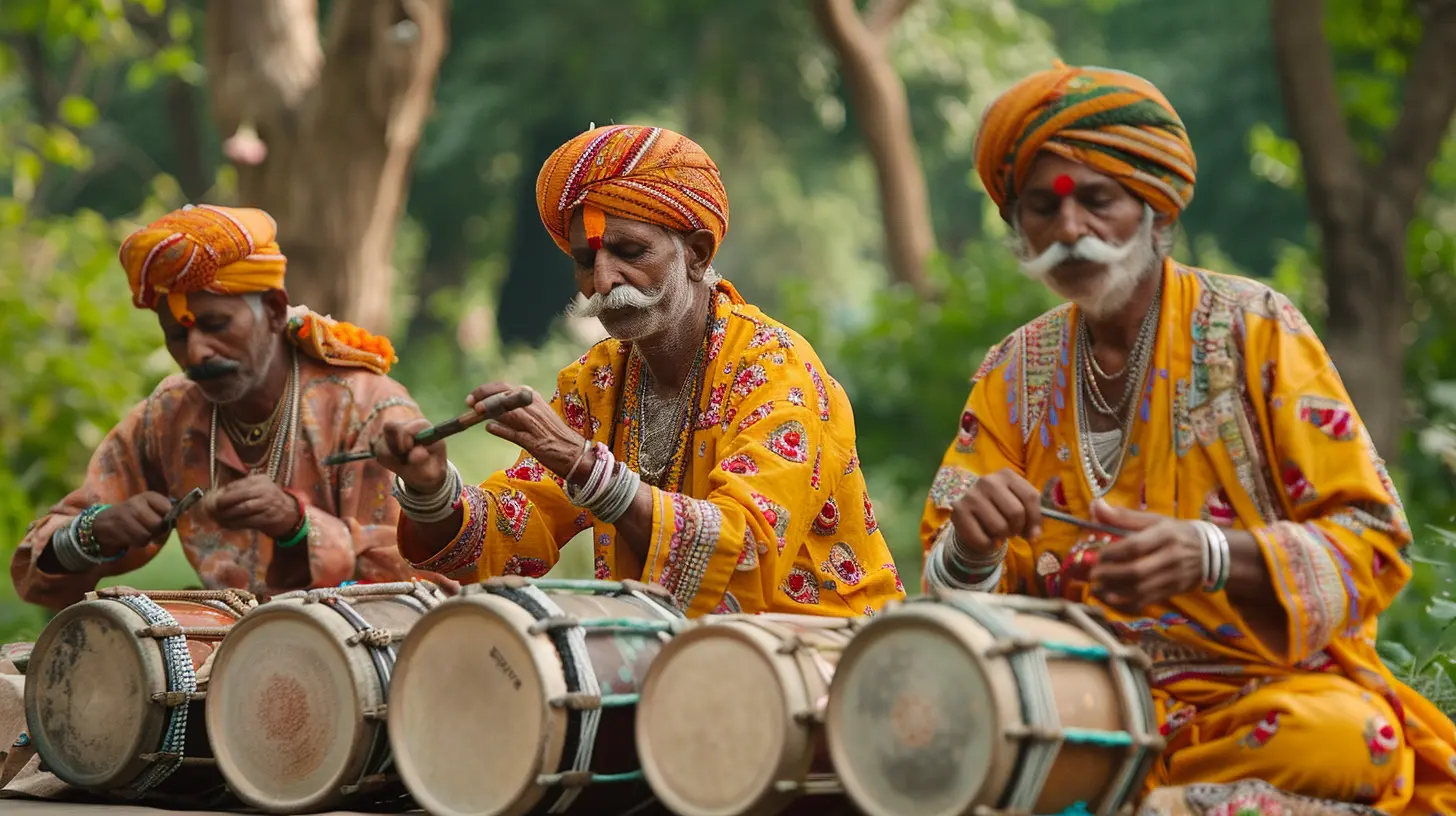
Drums, Strings, and Chants: A Global Tour of Musical Traditions
Each corner of the world boasts unique musical traditions tied closely to its cultural identity. Let’s journey across continents and listen in on what makes their musical roots so special.🎶 Africa: Rhythm of Life
Africa is where rhythm reigns supreme. Drumming is more than sound; it’s communication. At festivals like the Durbar Festival in Nigeria or Gerewol in Niger, you'll hear the djembe, talking drums, and kora instruments echoing through the celebrations.Music in African celebrations does more than entertain — it expresses emotions, conveys stories, and even signals social messages. You’ll find entire communities coming together, singing in call-and-response patterns that reflect unity and shared history.
🎶 Asia: A Symphony of Spirituality and Celebration
From the sitar-filled streets of India to the delicate sounds of the guzheng in China, Asian cultures blend music with spiritual and joyful expressions.- India: Music is a sacred thread in every festival. During Diwali, you’ll hear devotional bhajans and dance to Bollywood beats. At weddings, the sangeet night is an epic celebration of music, laughter, and love.
- Japan: Traditional Japanese music, like Gagaku, is slow and deliberate — matching the cultural emphasis on balance and harmony. Festivals like the Gion Matsuri preserve these ancient musical arts.
- Indonesia’s gamelan orchestras offer another strikingly unique auditory experience — layers of metallic percussion syncing in hypnotic rhythm during celebrations and temple ceremonies.
🎶 Europe: Folk Roots and Festival Beats
European cultural celebrations are a kaleidoscope of musical traditions.- Scotland: The bagpipes at Highland Games stir national pride.
- Spain: Flamenco dances during Feria de Abril in Seville are fueled by guitar strums and passionate vocals.
- Germany: Oktoberfest isn’t Oktoberfest without traditional Bavarian oompah music. It’s impossible not to sway along!
In many European countries, folk music during seasonal festivals keeps old tales alive while encouraging new generations to take part in age-old traditions.
🎶 Latin America: Passion in Every Beat
Music in Latin America doesn’t just accompany a celebration — it IS the celebration.- Brazil's Carnival: Samba is the soul of this spectacle. It’s wild, joyous, and utterly infectious.
- Mexico’s Dia de los Muertos: Mariachi bands play tunes that are both lively and reflective, celebrating life and honoring the dead.
The rhythms, often born from African and Indigenous influences, pulsate through the streets during festivals, binding people in shared joy and remembrance.
🎶 North America: The Melting Pot of Melody
With so many cultures blending together, North America's musical traditions are wildly diverse.- USA: Mardi Gras in New Orleans is impossible without jazz and brass bands parading through the streets.
- Canada: Powwows among Indigenous communities celebrate heritage through drumming, song, and sacred dances.
These musical experiences offer powerful reminders of cultural resilience and pride.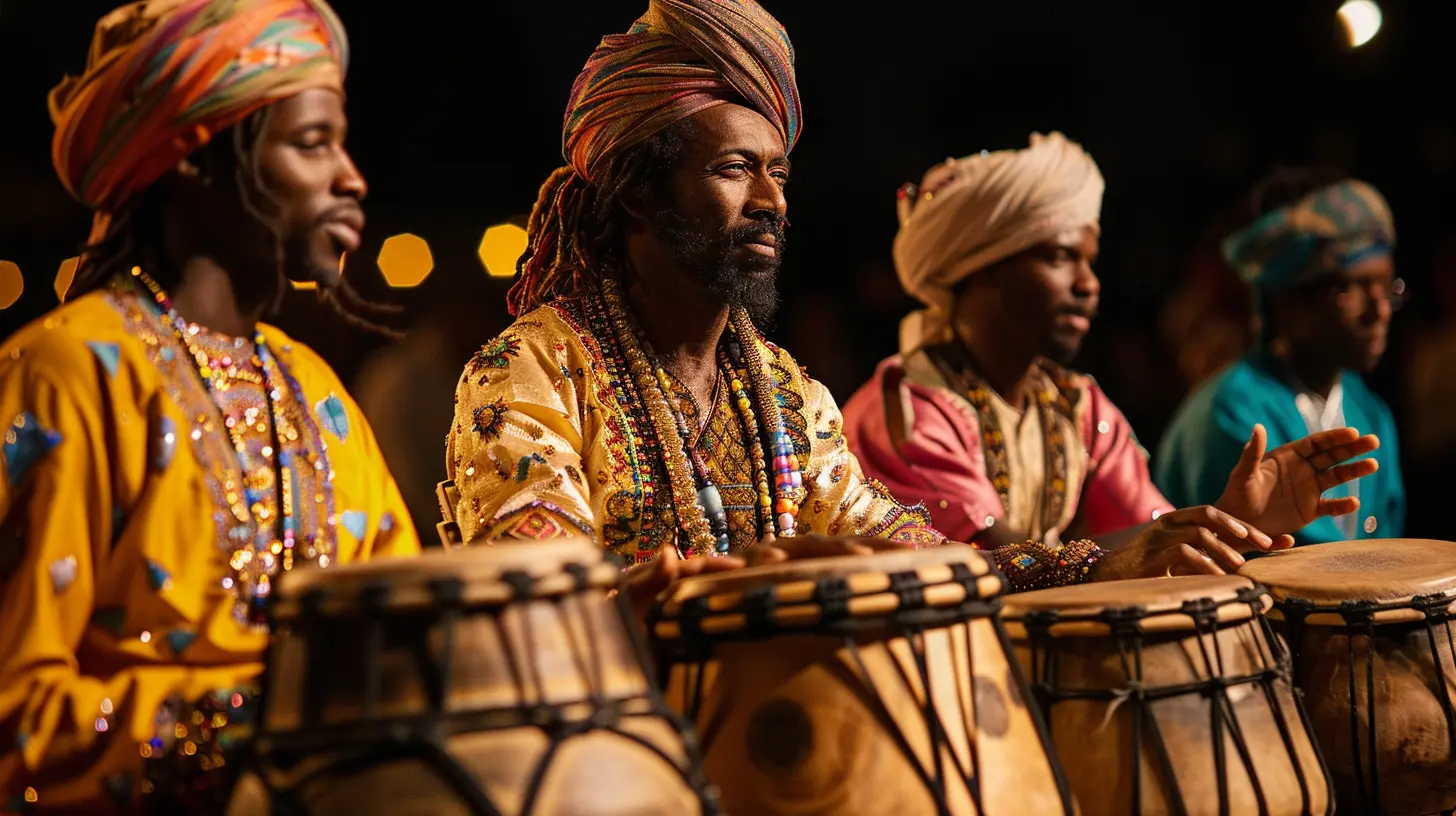
Music and Ritual: Soundtracks for Sacred Moments
Music isn't just for fun — it often carries deep spiritual significance. In many cultures, specific songs are sung only during sacred moments. Think Gregorian chants in ancient cathedrals or the Adhan (Islamic call to prayer) echoing through cities.During rites of passage like baptisms, bar mitzvahs, or funerals, music sets a contemplative mood, marking the importance of the occasion. It helps people feel connected — to each other, to their ancestors, and to a higher power.
Dance and Music: The Power Duo of Cultural Festivities
You really can't talk about music at cultural celebrations without mentioning dance. The two are like peanut butter and jelly — better together.Whether it’s the swirling skirts in a Mexican folklórico or the powerful stomp of South African Pantsula, dance lets people physically embody the rhythm. It’s an emotional release, a cultural expression, and, let's be honest, a whole lot of fun.
And the best part? You don't have to be a pro. Just let the beat guide you.
From Ancient to Modern: Evolving Traditions
Musical traditions, just like cultures, evolve over time. While some elements stay sacred and unchanged, others adapt to contemporary tastes.For instance, in many festivals today, you’ll hear traditional instruments mixed with electronic beats. It’s old meets new — and it’s creating fresh waves of cultural expression.
Even diasporas have created unique musical fusions — like Afrobeat in the UK or K-pop blending Western pop with Korean folk undercurrents.
Music keeps traditions alive, even as it morphs with each new generation.
Why Tourists Love Cultural Celebrations With Music
If you’ve ever traveled somewhere during a cultural festival, you know this: the music sticks with you. Long after the parade is over and the confetti swept away, those melodies play in your head and heart.Tourists are naturally drawn to these celebrations because music provides an authentic, immersive experience. It’s one thing to read about a culture. But to hear it? To feel it humming in your chest? That’s unforgettable.
Here are just a few reasons music-driven experiences are a traveler's delight:
- Easy connection: You don’t need to speak the language.
- Community vibe: Locals and tourists dance side by side.
- Memory making: Music is emotionally sticky — it helps lock in those special memories.
Keeping Traditions Alive: The Role of Music Today
Many communities are working hard to preserve their musical traditions through community festivals, school programs, and cultural exchanges. Governments and non-profits are also stepping in to archive and promote these sonic treasures.Tourism, when done respectfully, can actually help. Curious travelers bring awareness and encouragement to keep these traditions going. So next time you're invited to join a local drum circle or traditional dance — say yes! You're not just participating; you're helping a culture thrive.
Final Thoughts: Music is the Melody of Mankind
At the heart of it all, cultural celebrations aren’t just about rituals or performances. They’re about people — connecting, remembering, and rejoicing. And music makes all of that possible.So whether you're dancing barefoot at a beach festival in Fiji or swaying to ceremonial songs in a Himalayan village, remember — you’re taking part in something truly timeless. It's not just music. It’s humanity, harmonized.
all images in this post were generated using AI tools
Category:
Cultural FestivalsAuthor:

Winona Newman
Discussion
rate this article
1 comments
Rose McLemore
Who knew our dance moves could be a universal language? Let’s just hope my two left feet don’t start a riot!" 🎶💃
October 31, 2025 at 5:43 AM

Winona Newman
Indeed! Dance transcends borders—just embrace the rhythm, and you'll find a way to connect! 🎶💃
